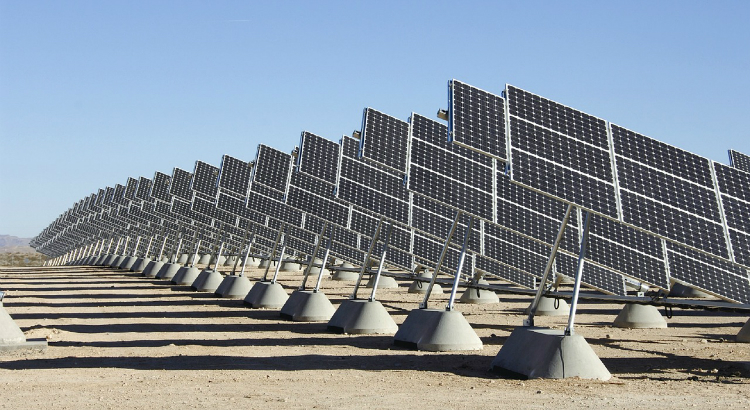A mix of panic buying and cancelled projects has swept over the U.S. solar installation industry in response to a trade complaint by Georgia-based panel manufacturer Suniva, according to a report this morning from Reuters.
[S]igns of a chill are already visible as the industry waits to see how President Donald Trump responds to a recent trade complaint lodged by a Georgia manufacturer named Suniva. The company has asked the administration effectively to double the price of imported solar panels so that U.S. factories can compete.
On one hand, installers and project owners are accelerating their purchase of photovoltaic panels and some are stockpiling supplies. That’s boosted spot prices by as much as 20 percent. On the other hand:
Skittish U.S. energy customers are putting some solar projects on hold. Manufacturers are eyeing other markets to develop. And some investors are running for cover. Funding for large U.S. solar deals fell to $1.4 billion in the second quarter, down from $3.2 billion in the first quarter and $1.7 billion a year earlier, primarily due to concerns about the trade case, according to research firm Mercom Capital Group.
Suniva was founded by Ahjeet Rohatgi, a Georgia Tech professor and the director of the school’s Center for Excellence in Photovoltaics. Ironically, it’s now owned by a Hong Kong holding company. The U.S. International Trade Commission has scheduled a Sept. 22 vote on the company’s unfair trade claim and to forward its recommendations to President Trump by Nov. 13.
At that point, the president would have the option of accepting the ITC recommendations or fashioning his own separate decision. Solar industry advocates say additional tariffs could cost 88,000 American jobs, mainly among installers. Trump’s rhetoric against Chinese trade and his lack of enthusiasm for clean energy have raised anxieties that he’ll rule in favor of tariffs.



This ill-conceived trade action could not have been better designed to deal a disabling blow to the 450,000 Americans who currently have non-exportable jobs marketing, financing, installing, & maintaining solar energy systems. An analysis by GTM Research concluded that the proposed tariff would reduce US solar installations by two-thirds–some 47,000 MW–over the next five years. It is a sad irony that Suniva now seems destined to go down in history as the entity that did the most to undermine the growth of solar energy in the United States. If the GTM Research analysis is correct, more solar workers will lose their jobs as a result of this awful lawsuit than the total number of people employed mining coal in America.
There is a simple solution to this initiative by Suniva. Don’t buy Suniva solar panels. Don’t buy any Suniva subsidiary panels. Don’t buy anything from Suniva. That will put them on the defensive and possibly move all of their work to other countries. There are many more workers who support and install solar systems than manufacture solar panels in the U.S. I’m also wondering if they will somehow try to stop the Tesla/Solar City giga plant in New York who will most likely produce under priced panels, when compared to Suniva.
A little history on the Suniva venture capital investor. Many people invested a lot of money into Suniva and ended up, after ten years, with 0% return. The finance managers who put them into this investment, however, did take their cut. Suniva was touted as an absolute winner with top notch management and research talent as well as a huge number of pre-sold solar applications. Little did we know this investment recommendation was dependent on liberal government policy making. Where is the lawsuit against Suniva for those investors who lost so much money?